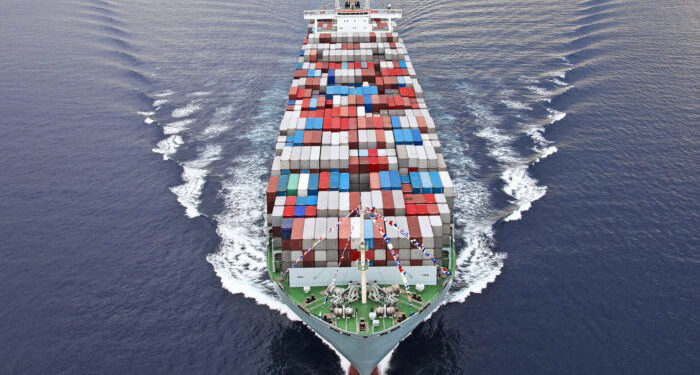The trend of the increasing ship sizes has major benefits for maritime transport, but a mega box ship casualty will result in a number of losses and third party liabilities for an owner. In this article, Ms. Revecca Vasiliou and Ms. Ursula O’Donnell, Divisional Claims Directors at the Standard P&I Club, discuss the major areas of P&I cover that respond to a major casualty incident.
P&I claims handling
From the outset, the club will work closely with our member and its hull insurers to ensure that prompt action is taken to try and avoid and mitigate any losses and liabilities.
Loss of life and personal injury of crew
The crew’s safety and well-being is at the forefront of our minds when dealing with any casualty or major incident. Upon notification to the club of any such incident, usually a search and rescue operation is already underway. The club, via its extensive global network of correspondents, will help ensure that the crew members receive the best level of medical treatment and are properly assessed before their repatriation home is arranged. The club is also able to draw on the services of CEGA, a specialist medical management company, part of the Charles Taylor group, in appropriate cases.
The cost of medical treatment and repatriation is covered under an owner’s P&I policy as are the costs of the funeral for any crew member who may have died as a result of the incident. P&I cover also responds to a member’s responsibility at law and/or under a collective bargaining agreement and the employment contract to compensate the crew member (or their family) for any injury or death in service.
Liability of the owner to crew for the loss of personal effects is also covered.
Collision liability
Typically, a ship’s hull underwriter will cover three-fourths of the liability of the insured ship in respect of loss of/damage to another ship and her cargo as a result of a collision. Generally, this means one-fourth of this liability is covered by the ship’s P&I policy (although other arrangements are often in place).
Hull underwriters and P&I will work together in respect of handling collision liability and the provision of security.
Pollution
Over recent years, there has been a significant increase in an owner’s liability for pollution caused as a result of a casualty or incident, such as an escape of cargo and/or bunkers. The club and the owner will work actively with organisations such as ITOPF to try and mitigate the effects of any pollution. P&I cover will respond to an owner’s legal liability for such accidental pollution as well as steps to be taken to try and prevent and/or minimise any such pollution following an incident.
The club can also provide security by way of a letter of undertaking for P&I liabilities such as pollution and wreck liabilities to allow a ship to enter a port for refuge.
Wreck liabilities
P&I cover includes liabilities for or incidental to the raising, removal, destruction, lighting or marking of the wreck of the ship (or cargo or property carried on the ship). The value of the wreck and all stores and materials saved will be deducted from any reimbursement payable to members.
Cargo liabilities
A mega box ship has the capacity to carry a huge volume and variety of cargo which means that any casualty or incident involving a mega box ship has the potential for an extraordinary number of cargo claims. Unless different arrangements are agreed in advance with the club, cargo liability cover is given on the basis that the contractual terms of carriage are no more onerous than those of the Hague or Hague-Visby regimes (or Hamburg Rules where applicable by law).
P&I cover also responds to an owner’s liability to discharge or dispose of worthless cargo (provided such costs cannot be recovered from any other party). As is discussed later in this publication, local and international regulations must be adhered to when disposing of damaged and often hazardous cargo which can make this process very complicated and expensive.
Cargo’s proportion of general average or salvage
P&I cover extends to the proportion of general average, special charges or salvage which an owner is or would be entitled to claim from cargo interests or another party which is not recoverable solely by reason of a breach of the contract of carriage.
SCOPIC
SCOPIC (or Special Compensation P&I Clause) is an adjunct to the Lloyd’s Open Form salvage contract, designed to encourage a salvor to respond where there is a threat to the environment but where the traditional assessment of salvage renumeration may not provide sufficient encouragement. Although P&I cover includes SCOPIC remuneration, owners should be careful to ensure that no side letters are signed with the salvors without first consulting with the club as such side letters could provide cover and could render any SCOPIC security provided by the club invalid.
Above article has been initially published at the Standard P&I Club’s website and is reproduced here with the authors’ kind permission.
The views presented hereabove are only those of the author and not necessarily those of SAFETY4SEA and are for information sharing and discussion purposes only.
About Revecca Vasiliou
 Revecca Vasiliou is Divisional Claims Director at the Standard P&I Club with an expertise in bills of lading / contracts of carriage, cargo, and technology. She holds an LLB in Law and an LLM in Maritime Law, University of Bristol. She has worked as a qualified solicitor specialising in shipping law for 5 years with an international shipping law firm. In 2014, she joined Charles Taylor as Senior Claims Executive. She was appointed Divisional Claims Director in January 2017. She sits on the International Group Sub-committees for bills of lading, GA and the autonomous vessels working group.
Revecca Vasiliou is Divisional Claims Director at the Standard P&I Club with an expertise in bills of lading / contracts of carriage, cargo, and technology. She holds an LLB in Law and an LLM in Maritime Law, University of Bristol. She has worked as a qualified solicitor specialising in shipping law for 5 years with an international shipping law firm. In 2014, she joined Charles Taylor as Senior Claims Executive. She was appointed Divisional Claims Director in January 2017. She sits on the International Group Sub-committees for bills of lading, GA and the autonomous vessels working group.
About Ursula O’Donnell
 Ursula O’Donnell is Divisional Claims Director at the Standard P&I Club, with an expertise in offshore and specialist operations, major casualty management, and sanctions. She is a qualified barrister, having worked in private practice in a London law firm. She was admitted as a solicitor of the Supreme Court in 2003 and joined Charles Taylor in 2007 as a claims executive. She was appointed as claims director in the offshore Division in 2011.
Ursula O’Donnell is Divisional Claims Director at the Standard P&I Club, with an expertise in offshore and specialist operations, major casualty management, and sanctions. She is a qualified barrister, having worked in private practice in a London law firm. She was admitted as a solicitor of the Supreme Court in 2003 and joined Charles Taylor in 2007 as a claims executive. She was appointed as claims director in the offshore Division in 2011.





























































